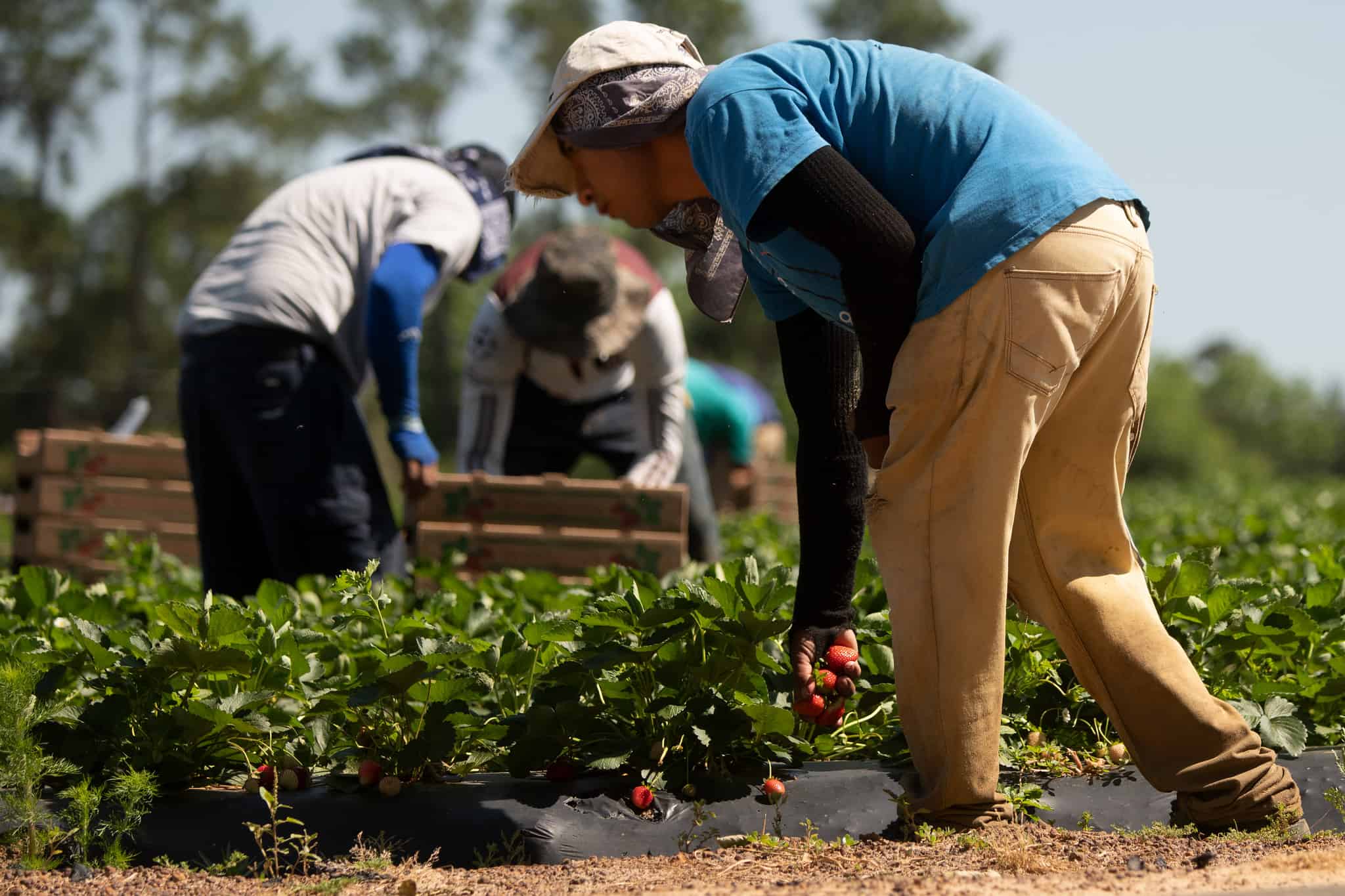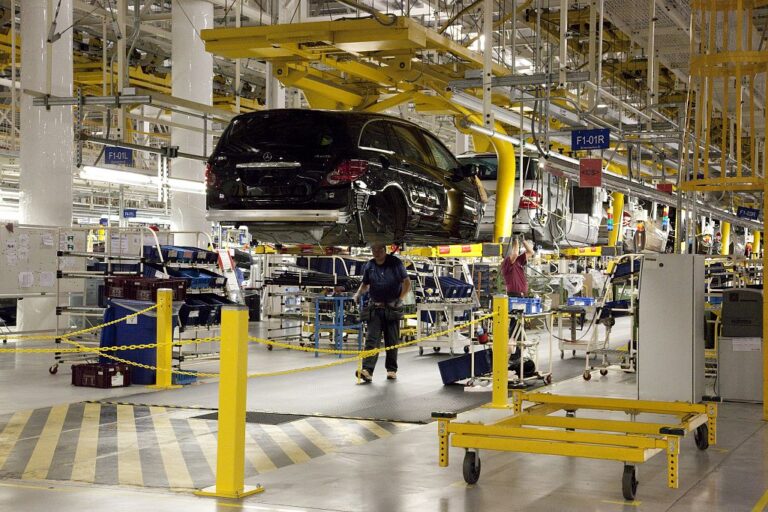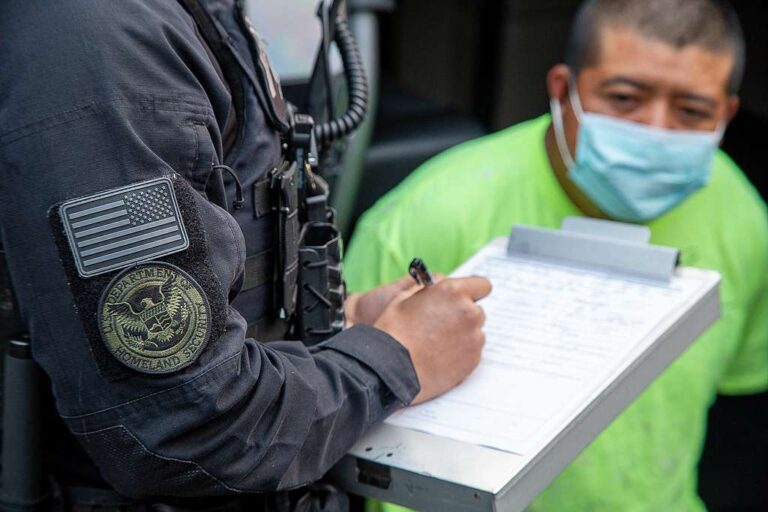Fran Swanson is a student at Harvard Law School.
A brutal heat wave is endangering farmworkers and construction workers, as well as people living in poverty and confronting housing insecurity, ABC News and the New York Times report. Many workers in these sectors are undocumented, which makes them especially vulnerable to abusive labor practices. In cities like Phoenix, many of the construction workers who work long hours in response to the city’s pandemic-induced housing boom can’t afford stable housing, which puts them at risk for heat-related injuries off the job, too. Legislation may be on the horizon to help protect farmworkers nation-wide, though. But Armando Elenes, secretary treasurer of United Farm Workers, explained that “laws on the books are not the laws in the fields,” underscoring the crucial role of enforcement in vindicating the rights of workers. A federal bill, modeled after California legislation that was a hard-won victory for farmworkers, would require OSHA “to establish an enforceable standard of protections, like access to water, paid breaks in cool areas, limits on time in the heat and providing emergency responses for workers suffering from heat-related illnesses.”
A California bill designed to notify workers and the public about the location and severity of workplace COVID outbreaks has had a limited impact, six months after taking effect. The Mercury News reports that, of the 58 counties and three cities with their own public health departments, only 20 released any material. The bill, which may be improved by “clean-up” legislation this session, was meant to provide crucial information to essential workers, but was hastily drafted—and then watered down at the behest of business lobbyists. The result was vague language about the importance of employee privacy that some local government health entities have argued prevents them from releasing the kind of information that workers need to stay safe and that local news outlets need to be able to inform the public. “[T]he company, and the state, and the county—after all we’ve done, and been through, nobody’s got our back at this point,” observed one grocery worker.
A ban on at-will employment in the fast-food industry in New York City will take effect in July. At-will employment—the default in the United States—allows workers to be fired for no reason or bad reasons, limited only by antidiscrimination and (some) safety laws, limitations that are often weak against the backdrop of extreme job insecurity that the at-will system creates. The ban, which will impact approximately 70,000 workers, will be accompanied by measures that protect against retaliatory firings under the guise of layoffs, like seniority provisions and a requirement that laid-off workers be hired back first before turning to new hires. In a deep-dive for Bloomberg, Josh Eidelson explains how this landmark legislation builds on more incremental measures we’ve seen emerge in the pandemic’s wake and notes the possibility for federal movement on the issue, which is more likely to come through executive action. The legislative victory comes after significant pushback—and pending legal challenges—from businesses, a win that is a testament to the brave organizing of workers like Melody Walker, a single mother who was fired from Chipotle after her manager said she wasn’t smiling. Advocates are hopeful that just cause protections, by meaningfully addressing a significant source of fear workers face, will facilitate greater worker power and organizing more broadly.
Finally, as commemorations of Juneteenth took place across the country this weekend, the National Employment Law Project’s Rebecca Dixon wrote powerfully about the need to connect this collective remembrance to “the long-term fight for labor justice, centering Black workers.” Half of Black men and 90% of Black women were excluded—intentionally—from the New Deal framework that offered real protections for other workers. The pandemic underscored that “Black women’s labor is vital to everyone’s labor and freedom,” Dixon writes, and organizing and legislative action must reflect that.






Daily News & Commentary
Start your day with our roundup of the latest labor developments. See all
June 5
Nail technicians challenge California classification; oral arguments in challenge to LGBTQ hiring protections; judge blocks Job Corps shutdown.
June 4
Federal agencies violate federal court order pausing mass layoffs; Walmart terminates some jobs in Florida following Supreme Court rulings on the legal status of migrants; and LA firefighters receive a $9.5 million settlement for failure to pay firefighters during shift changes.
June 3
Federal judge blocks Trump's attack on TSA collective bargaining rights; NLRB argues that Grindr's Return-to-Office policy was union busting; International Trade Union Confederation report highlights global decline in workers' rights.
June 2
Proposed budgets for DOL and NLRB show cuts on the horizon; Oregon law requiring LPAs in cannabis dispensaries struck down.
June 1
In today’s news and commentary, the Ninth Circuit upholds a preliminary injunction against the Trump Administration, a federal judge vacates parts of the EEOC’s pregnancy accommodation rules, and video game workers reach a tentative agreement with Microsoft. In a 2-1 decision issued on Friday, the Ninth Circuit upheld a preliminary injunction against the Trump Administration […]
May 30
Trump's tariffs temporarily reinstated after brief nationwide injunction; Louisiana Bill targets payroll deduction of union dues; Colorado Supreme Court to consider a self-defense exception to at-will employment